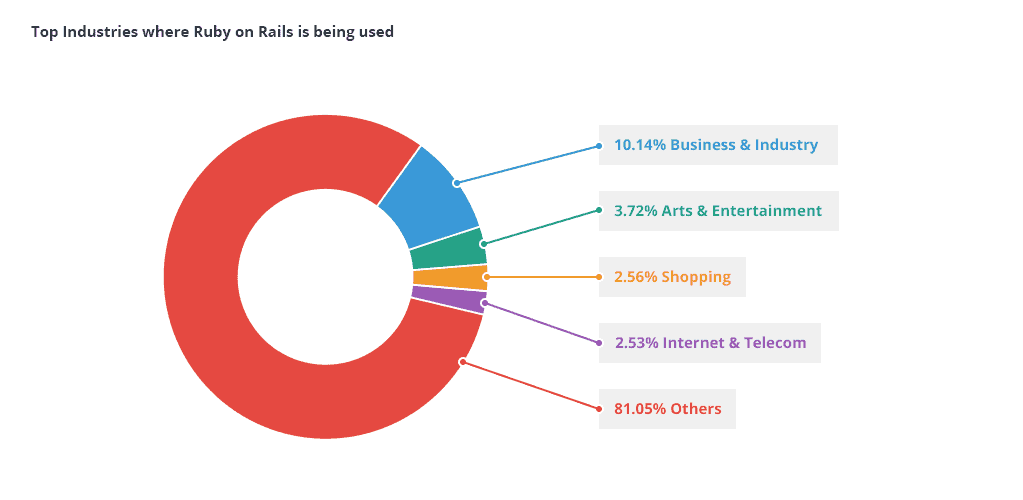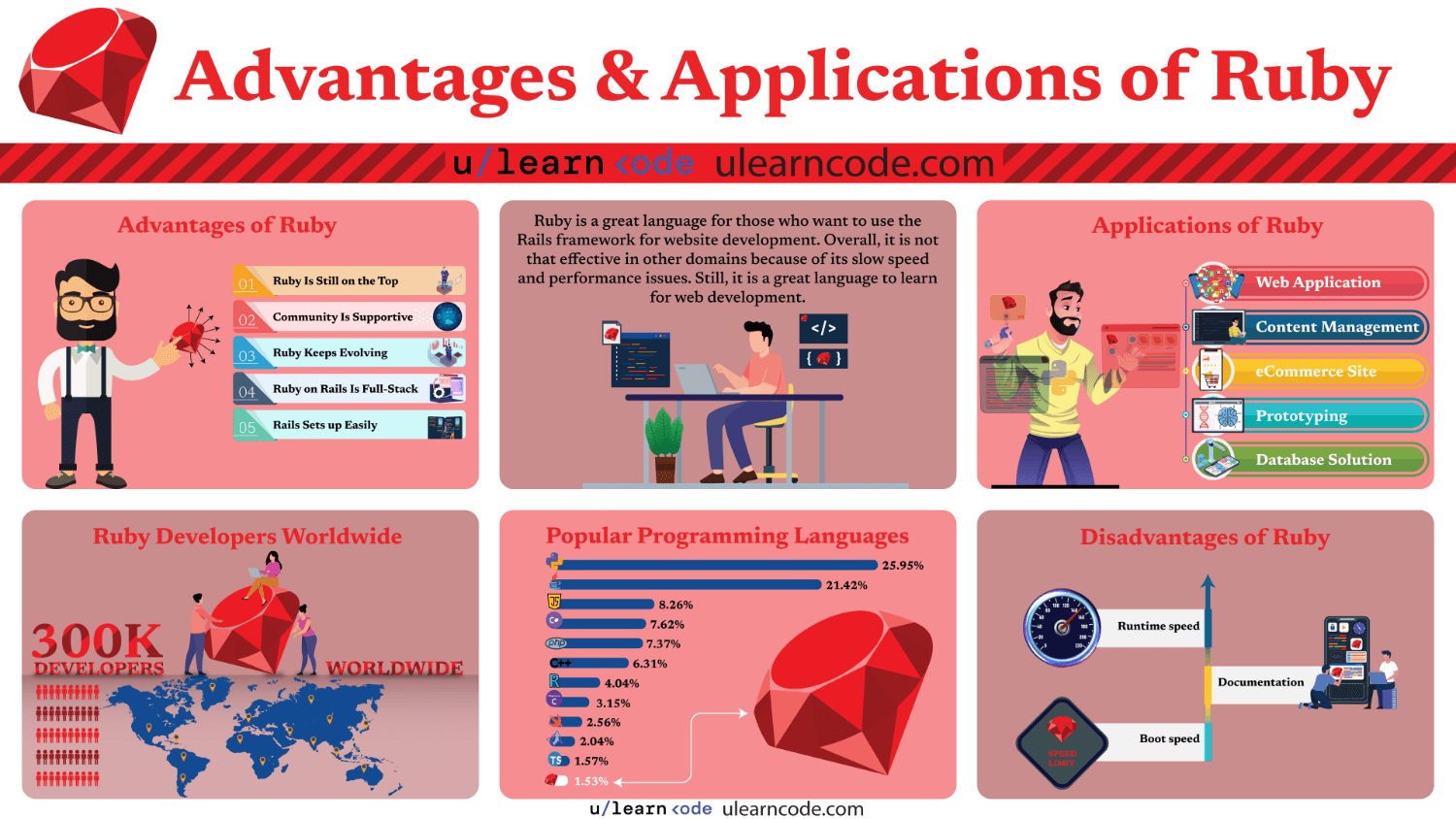Contents
Ruby is a general-purpose programming language that was developed in the mid-1990s. Many people confuse Ruby with Rails, which is one of its frameworks. Rails focuses on web-development and its applications, while Ruby itself is a noteworthy language like Python.
Ruby on Rails is extremely popular among developers because of its efficient performance while developing a website or application. The use of the Rails framework is notable in Business and Industry where different web applications are needed.

This language is capable of creating all types of web applications, tools, database and server solutions, etc. It can be matched with some other popular programming languages such as Python and Java in terms of their usage and application.
Ruby Programming Language Uses
The applications of Ruby are widespread, and it is being used in many major industries such as:
- commerce
- business
- science
- technology
- engineering
Some of the major applications of this language are described below:
1. Web Applications
Ruby allows you to create interactive web pages using one of its frameworks called Rails. Rails has multiple gems or libraries that allow you to create excellent websites with fast and efficient coding.
Ruby on Rails is a framework where developers can achieve amazing results with fewer lines of code. Rails is awesome for new businesses and startups who have a low budget for website creation.
It runs smoothly unless there are millions of visitors directed to your website. If you want to be a full-stack web developer, then this language is a an option you should consider learning from these best web development courses.
Several other web development languages such as JavaScript, HTML and CSS, and also help you develop interactive websites along with the Rails framework.
2. Content Management
This is the language to use if you want to set up your own Blog for constant content upgrades. The language can help you develop custom systems for proper content management using a range of its libraries or gems.
Many of its libraries include built-in features that can be easily embedded into your content-oriented website. Ruby not only makes your content management easy, but it also helps in content distribution.
The language is also very helpful when it comes to the SEO ranking of your content. Some other content management languages including PHP and Java are used to create proper content management systems.
3. eCommerce Sites
One of the most popular eCommerce platforms, Shopify, uses this language because of its extensive range of gems (libraries) that are specifically targeted towards the best eCommerce features.
The language has a lot of eCommerce related features such as:
- payment gateways integration
- help desks
- email campaign platforms
It covers almost all important aspects of an eCommerce website.
There are several other good languages for eCommerce sites such as Python, which uses its framework called Django to carry out all eCommerce development-related tasks.
4. Prototyping
This is an excellent language for prototyping as it helps you create prototypes for complete web applications. It offers amazing gems with a lot of features that make prototyping smooth and easy.
You can quickly create your prototype versions using a set of features that these gems have to offer. The basic structure is enough to tell you about the feasibility of your end product.
Teams can easily collaborate on different software projects by creating prototypes using Ruby language. Java and C are two of the other best prototyping languages to use. If you want to learn by yourself, then choose one of prototyping courses for detailed guidance.
5. Database Solutions
The Ruby on Rails framework can be used to work with custom databases. The framework offers ActiveRecord which is a great tool for database solutions. It allows you to create and manage simple and easy databases without the need of SQL.
ActiveRecord can also be easily integrated with other big and complex Database Management Systems. There are numerous other languages used for Database creation and management such as Java and PHP.
If you are interested in the database domain, you can start your journey from some good database courses that will teach you about SQL and other programming languages.
Why Should I Learn Ruby?

Some people might argue that Ruby is dead or that the Rails framework is useless but that is certainly not the case. Here are a few reasons why you should learn it:
1. Ruby Is Still on the Top
This language still stands among the top ten best programming languages. Some popular organizations such as Github and Airbnb still rely on the Rails framework. AWS also added this language to their serverless computing solutions list.
2. Community Is Supportive
The Ruby community might not be that active, but you get solutions to all of your problems on relevant forums such as StackOverflow or Gorails. There are still 3500 active Ruby contributors on Github and they are all keeping this language alive.
3. Ruby Keeps Evolving
The language is constantly updated, which is proof that it is not dead at all. The recent Ruby 3 release in 2020 came with some enormous changes that made this language a better choice for developers despite its minor performance-related issues.
4. Ruby on Rails Is Full-Stack
If you want to become a full-stack web developer, Ruby on Rails is the option to go. It integrates with other web development languages such as HTML, CSS, and JavaScript to develop both the front- and backend of a site. You can learn Rails by choosing your best Ruby course.
5. Rails Sets up Easily
Ruby on Rails is extremely easy to set up and there is no need to write any extensive configuration files. You have to install Rails and set up the basic configuration options to get started.
To Sum Up
Ruby is a great language for those who want to use the Rails framework for website development. Overall, it is not that effective in other domains because of its slow speed and performance issues. Still, it is a great language to learn for web development.